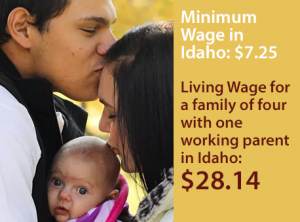This article by LeeAnn Hall, executive director of Alliance for a Just Society, was originally published in Huffington Post.
Is your state refusing to expand Medicaid? If so, it could be putting your health at risk, whether you’d qualify for Medicaid or not.
That’s because the Affordable Care Act (ACA) – the health reform bill — is about more than covering the uninsured. It’s also designed to strengthen the health care system for everyone. As a major source of health system funding, Medicaid – which covers low-income families, seniors, and people with disabilities — is a key part of that effort. You may not need Medicaid, but your hospital sure does.
As passed by Congress, the ACA made Medicaid expansion automatic. This expansion was slated to reach up to 15 million newly eligible working poor and near-poor adults and an additional 4 million who were previously eligible, but had not enrolled, injecting much-needed dollars into hospitals that had seen finances strained with growing uninsured rates.
However, when the Supreme Court ruled on the ACA in June 2012 it allowed states to opt out of expansion. With a stroke of the pen, the Court drove a gaping hole through health reform. Medicaid expansion would no longer be guaranteed across-the-board – it would now be the victim of contentious health-reform politics.
This decision proved disastrous for the families who had counted on Medicaid expansion for coverage and now find themselves in a terrible Catch-22. They earn too much for the meager Medicaid programs in states that have refused expansion. But, they also don’t make enough for coverage on the new health exchanges.
Yet these working-poor families aren’t the only victims of Medicaid expansion politics – hospitals and clinics are, too.
The costs of refusing Medicaid are staggering. Non-expansion states are passing up $423.6 billion in health care funds from 2013 through 2022. From 2014 through 2016, accepting Medicaid expansion would have provided $88 billion in health care funds. That’s $88 billion hospitals sorely need.
Meanwhile, the 27 expansion states will bring in an estimated $83.6 billion in additional health care funds.
Refusing Medicaid dollars is also a bad fiscal decision for states. That’s because the federal government will fully fund the expansion through 2016, with a gradual decrease over the next few years. Beginning in 2020, the federal government will provide 90 percent of funding — a matching rate that any investor would love.
The sad irony is that residents of opt-out states are contributing to the expansion through their taxes even if they can’t benefit from it. Meanwhile, residents of expanding states are seeing the investment in health care pay off.
Already, according to health-care rating agency Fitch Ratings, nonprofit hospitals and health care systems in expanding states are seeing benefits. Conversely, there’s already been a negative impact on hospitals in non-expanding states. This squeeze on hospitals is felt by all their patients.
The divergence between Medicaid-expansion states and refusing states will only grow. Under the ACA, the federal government is scheduled to scale back subsidies to hospitals with many low-income patients and high uncompensated care costs.
With automatic Medicaid expansion, the reduction in these “disproportionate share hospital payments” would have been offset by coverage gains — the hospitals wouldn’t need subsidies for the uninsured because almost everyone would be covered.
States that opt out of expansion are putting their hospitals at a double disadvantage.
There’s no reason to allow politicians to play these kinds of games with our hospitals and clinics. We should stand together to demand that the promise of Medicaid expansion — and a strong health care system — become reality in each of our fifty states.
Follow LeeAnn Hall on Twitter: www.twitter.com/LeeAnn_Hall





